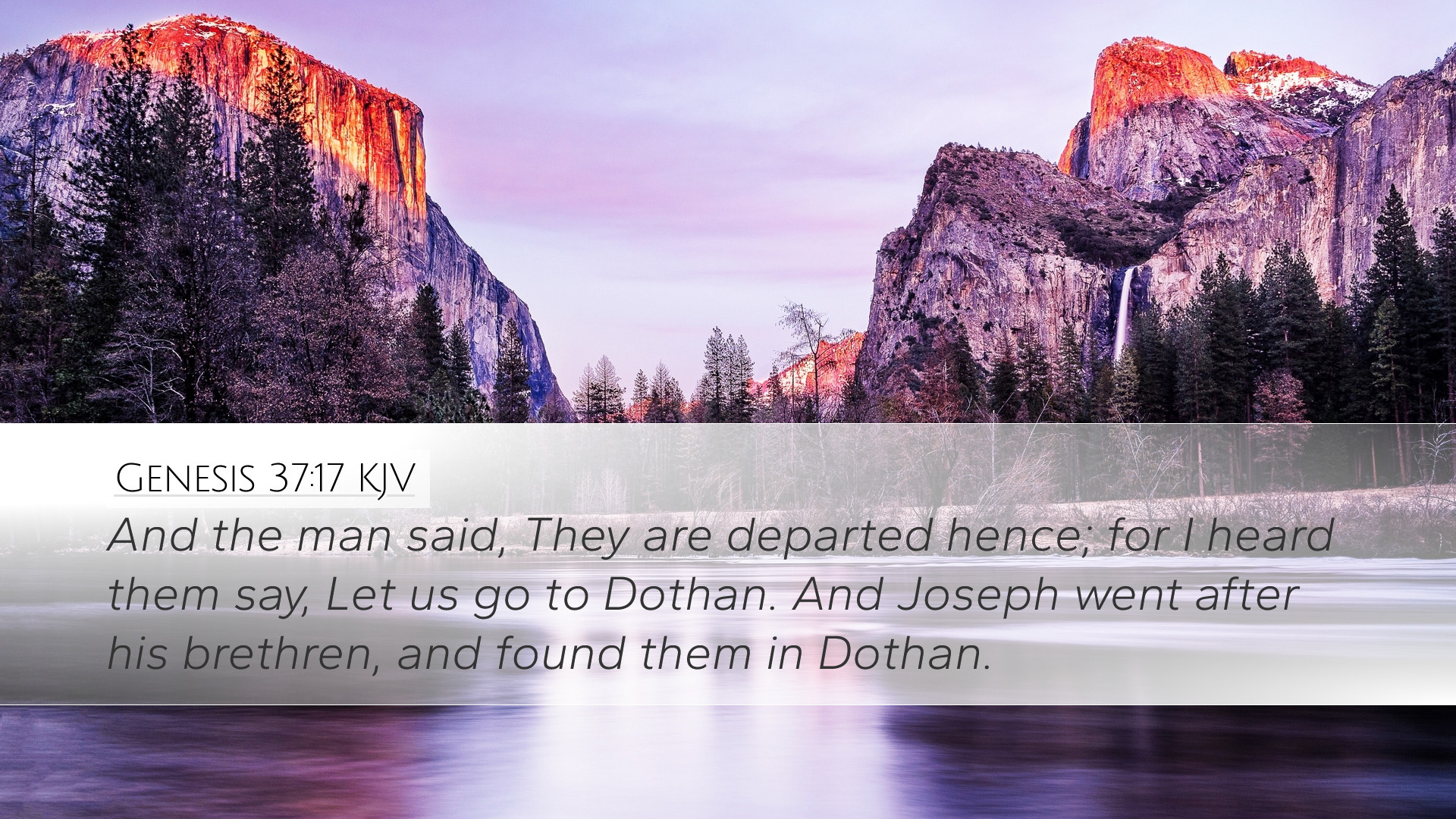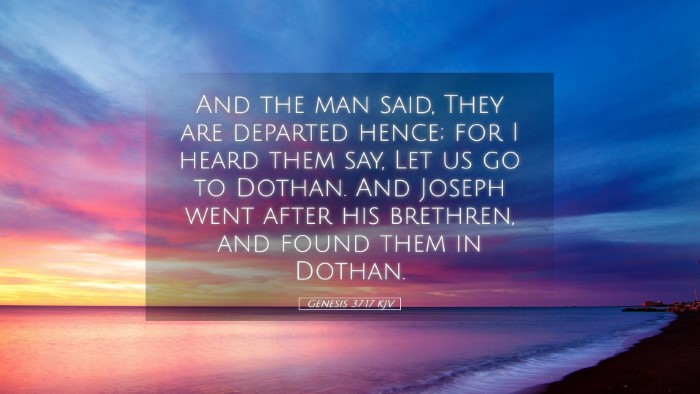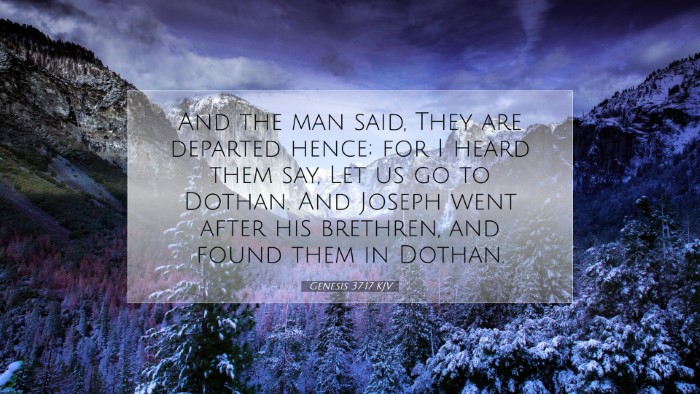Commentary on Genesis 37:17
Verse: "And the man said, They are departed hence; for I heard them say, Let us go to Dothan. And Joseph went after his brethren, and found them in Dothan."
Introduction
Genesis 37:17 marks a critical juncture in the narrative of Joseph, the favored son of Jacob. This verse is situated in the broader context of sibling rivalry, divine providence, and the unfolding plan of God in the life of Joseph. Commentaries from the works of Matthew Henry, Albert Barnes, and Adam Clarke provide insightful perspectives that can enhance our understanding of this pivotal moment in scripture.
Contextual Background
This chapter details the beginnings of Joseph's trials, stemming from his brothers' jealousy over their father Jacob's favoritism. The incident in Dothan is where Joseph's brothers plot against him, leading to consequences that echo through the entire narrative of Genesis.
Insights from Commentaries
-
Matthew Henry's Commentary
Henry provides a rich exploration of the providential aspects of God’s guidance in Joseph's life. He emphasizes that although Joseph was unaware of his brothers' intentions, God was orchestrating events for Joseph’s eventual elevation and for the preservation of Israel during famine.
Henry notes that the mention of Dothan is significant both geographically and spiritually. This city, known for its wells and agricultural richness, contrasts sharply with the betrayal that Joseph would face there. The distance Joseph traveled represents his steadfast dedication, even amidst adversity.
-
Albert Barnes' Notes on the Bible
Barnes reflects on the search for Joseph’s brothers and the man who directed him to Dothan. He illustrates the concept of divine foreknowledge, arguing that the man’s guidance served as a pivotal point that directed Joseph toward his destiny. Barnes points out that God's plans often unfold through seemingly mundane encounters and interactions.
Furthermore, he discusses the moral implications of Joseph's obedience in pursuing his brothers despite the dangers. This action illustrates a deep commitment to familial responsibility that resonates profoundly with pastoral teachings on reconciliation and understanding.
-
Adam Clarke's Commentary
Clarke provides detailed explanations of the geographical significance of Dothan, identifying it as a site that would become central to a series of events leading to Joseph’s eventual rise to power in Egypt. He emphasizes the historical and cultural context, interpreting Dothan's mention not just as a location but as part of God's unfolding storyline for Israel.
His commentary also delves into Joseph's character, portraying him as naïve yet virtuous, contrasting sharply with his brothers' malicious intent. This dynamic serves as a warning against envy and hatred, prompting reflection on the ethical dimensions of leadership and family dynamics within a theological framework.
Thematic Elements
-
Divine Providence
All three commentators underscore the theme of divine providence. The seemingly random encounter with the man who informs Joseph of his brothers' whereabouts illustrates how God can use ordinary events to fulfill His plans. This assurance is vital for believers, reminding them that even amidst difficulties, God is sovereign and actively involved in the affairs of humanity.
-
Obedience and Faithfulness
Joseph's obedience in pursuing his brothers, despite the underlying animosity, is prominent in the commentaries. This act is seen as a testament to his character, embodying a spirit of commitment and faithfulness that is worthy of emulation in spiritual leadership and community relationships.
-
Family Dynamics and Conflict
The narrative reveals deep-seated issues within the family structure of Jacob. The showcases of envy, betrayal, and family loyalty present a microcosm of broader human experiences. The commentators provide a pastoral approach, urging readers to consider the implications of these dynamics within their contexts, encouraging reconciliation and understanding in the face of conflict.
Conclusion
Genesis 37:17 is more than just a moment in the life of Joseph; it is significant in the broader redemptive narrative of scripture. The insights from the public domain commentaries illuminate the harmony between human actions and divine sovereignty. For pastors, students, theologians, and scholars, this passage serves as a rich resource for theological reflection on obedience, family relationships, and God's providential care in times of trial.


